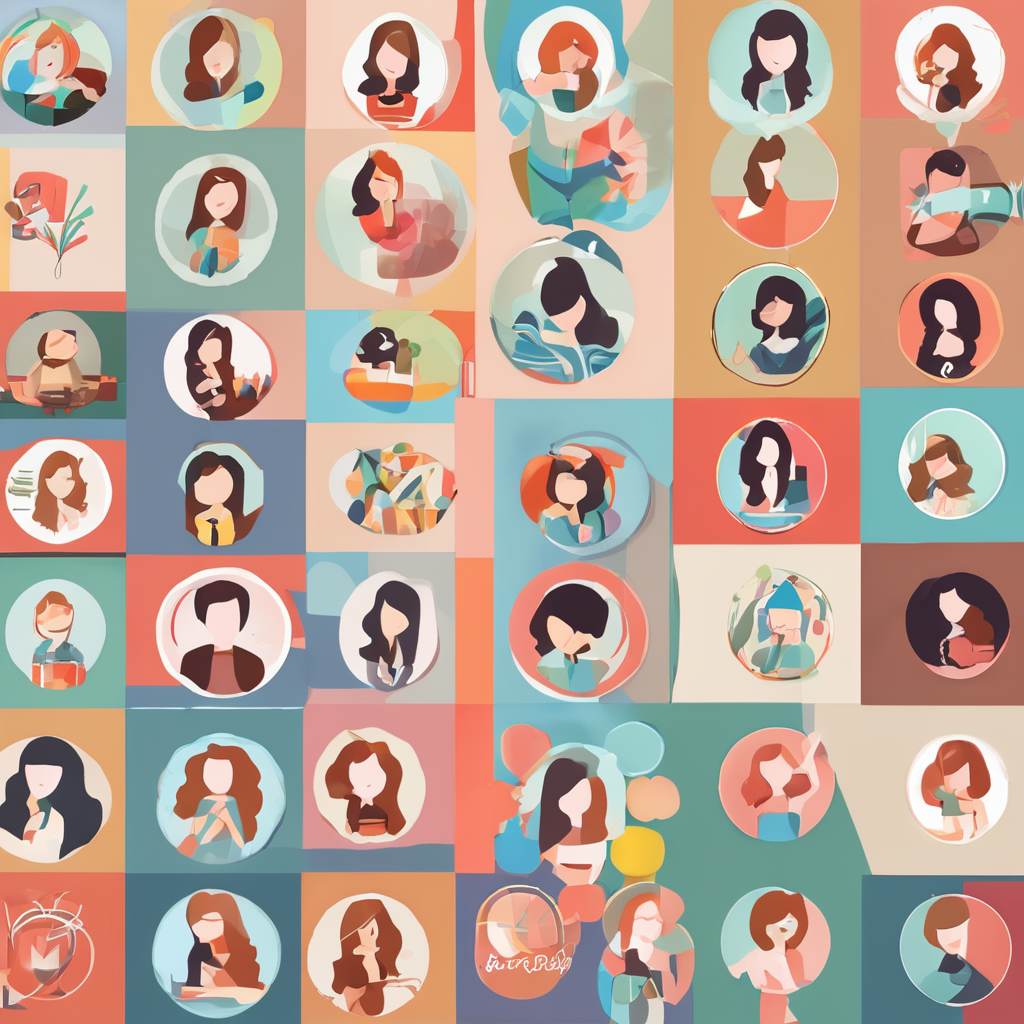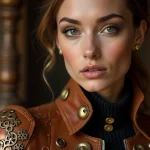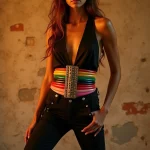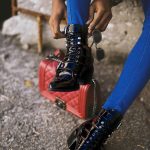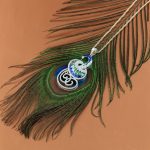Overview of Inclusive Fashion for Disabled Women
Inclusive fashion plays a crucial role in society, ensuring that disabled women can express themselves fully through clothing. Understanding the barriers they face is essential for developing solutions. Many disabled women encounter difficulties such as finding clothes that fit properly or are easy to wear. These barriers hinder personal expression and confidence.
To combat these issues, tailoring services have become increasingly important. Tailored clothing can cater to specific needs, like easy-closures or adaptive designs, making fashion more accessible. Tailoring empowers disabled women by allowing them to choose styles that reflect their personalities without sacrificing comfort or practicality.
Also to discover : Explore Manchester’s Finest Spots for Stunning Bespoke Velvet Evening Gowns
However, the market for inclusive fashion still has room for growth. More designers and manufacturers need to focus on creating collections that accommodate different abilities. By doing so, they address not only the practical concerns but also the desire for self-expression through fashion. Steps like these ensure that fashion meets all individuals’ needs, emphasizing that style and comfort are not mutually exclusive.
Inclusive fashion signifies progress beyond mere aesthetics. It champions the idea that diversity should be celebrated, providing everyone the opportunity to shine through what they wear.
This might interest you : Elevate Your Look: Ultimate Guide to Dazzling Synthetic Wig Styles for a Night Out in London!
Tailoring Services: Understanding the Landscape
Understanding the landscape of tailoring services for disabled women is vital. Tailoring services are specifically designed to improve accessibility in fashion. They offer custom solutions like adjustable seams, easy closures, and adaptive designs. These features are essential in inclusive design, addressing the unique challenges that disabled women face in accessing clothing that suits both their style and functional needs.
In the UK fashion scene, certain geographic locations are emerging as hotspots for inclusive tailoring. Cities like London and Manchester host a variety of inclusive design studios that specialize in creating garments that cater to a diverse array of abilities. These hotspots often showcase pioneering work in adaptive fashion and emphasize the need for diversity in design.
Several tailoring services are known for their commitment to adaptability and functionality. They stress the significance of feedback from disabled women, incorporating it into their offerings to ensure practicality and style coexist. By focusing on such inclusive practices, these services not only meet the immediate needs of their clients but also advocate for wider adoption across the fashion industry.
Profiles of Leading Tailoring Providers
Profiling leading tailoring providers in the inclusive fashion domain highlights their unique contributions and customer satisfaction. Here, we’ll delve into some of the top providers and their exceptional services for disabled women.
Provider 1: Profile and Services
The first provider focuses on delivering bespoke solutions ensuring both style and comfort. With a mission to enhance personal expression, this provider offers customizable options, addressing specific needs such as garments with easy closures. Their commitment to innovation helps create pieces that resonate with their clients’ individuality.
Provider 2: Unique Offerings
The second provider distinguishes itself through its extensive range of adaptive designs. Known for pushing the boundaries of traditional fashion, they incorporate feedback into new collections. This proactive approach involves frequent consultations with clients, ensuring that the final products meet both functional and aesthetic requirements.
Provider 3: Customer Testimonials
Finally, the third provider is celebrated for exceptional customer satisfaction. Testimonials often emphasize their meticulous attention to detail and the transformative impact on personal confidence. Clients express gratitude for the personalized service and the empowerment gained from having clothes that genuinely reflect their personality and preferences.
These tailoring providers showcase best practices, setting industry standards that prioritize customer-centric approaches and adaptive fashion innovation.
Practical Tips for Finding Tailoring Services
Finding the right tailoring services can be a transformative experience, providing both empowerment and accessibility to disabled women. When embarking on this journey, it’s crucial to equip yourself with effective strategies. Start by researching inclusive tailoring services through online platforms and community recommendations. These avenues serve as valuable resources, offering insights from real experiences.
Next, assess a tailor’s suitability for your specific needs. Evaluate their portfolio for adaptive designs, focusing on the use of easy closures and adjustable seams. Engaging in initial consultations can also help determine their understanding of inclusive fashion requirements. Don’t hesitate to ask questions about their experience with tailored clothing for disabled women.
Building a personal checklist is another essential step. Include criteria such as location, price range, and customization options to ensure you select a service that aligns with your preferences. Tailors specializing in inclusive design should also demonstrate an understanding of both aesthetic appeal and functional necessity.
By following these practical tips, you can navigate the landscape of tailoring services confidently, ensuring that your unique fashion needs are met. This approach not only enhances empowerment but also supports the movement toward broader accessibility in fashion.
Addressing Challenges in Fashion for Disabled Women
Navigating the landscape of fashion for disabled women comes with its unique set of challenges. Among the most common obstacles is the availability of clothing that accommodates mobility aids and various physical needs while remaining stylish. Disabled individuals often find mainstream fashion limited in options and lacking practical considerations.
To tackle these issues, several businesses have begun integrating innovative solutions. These solutions include adaptive clothing lines featuring easy closures, adjustable waistbands, and strategically placed openings. Such designs not only focus on practicality but also aim to enhance personal expression, making fashion more inclusive.
Organizations and individual advocates are pushing for change within the industry, emphasizing the urgent need for broader accessibility. Fashion shows, dedicated platforms, and advocacy groups are pivotal in spotlighting the importance of inclusive design. By supporting these initiatives, we further the cause of inclusivity in fashion, encouraging designers and brands to rethink traditional design approaches.
Community-driven efforts and collaboration with disabled individuals for firsthand insights ensure that fashion becomes a medium for empowerment rather than limitation, offering diverse choices that cater to varied abilities. This shift towards inclusive solutions is essential in eradicating barriers, fostering a more equitable fashion environment for all.
Resources and Organizations for Support
Navigating the world of inclusive fashion can be daunting. Fortunately, several support organizations actively promote visibility and accessibility for disabled women. These entities are at the forefront of championing changes within the fashion industry, ensuring that inclusivity is not just an option but a standard.
Fashion Resources such as adaptive clothing guides provide valuable insights for disabled individuals looking to enhance their wardrobes. These guides often offer practical advice on styling while considering specific requirements, ensuring that both aesthetic and functional needs are met.
Community initiatives play a pivotal role in driving change within the tailoring industry. By fostering environments where diverse voices are heard, these efforts advocate for broadening the scope of fashion to embrace all abilities. Events, workshops, and forums allow for meaningful discourse, paving the way for innovative solutions to longstanding barriers in fashion for the disabled community.
In addition, organizations like Open Style Lab provide platforms where designers and users collaborate to create clothing that truly reflects the wearer’s identity. Such entities not only facilitate dialogue but also serve as incubators for ideas that might one day redefine how fashion is perceived. Empowerment and accessibility are at the core of their missions, ensuring that every individual’s fashion journey is celebrated and supported.
Empowering Stories: Testimonials and Experiences
Creating an identity that resonates through clothing is vital for many disabled women. Personal stories reveal how tailored solutions significantly impact their daily lives.
One woman shared her transformative journey, emphasizing that wearing clothes emphasizing both style and accessibility boosted her self-esteem. “Before finding the right tailoring services, I felt my clothing choices were limited,” she recounts. “But now, my wardrobe reflects my personality and meets my needs.”
Another narrative describes how tailored pieces allowed a woman to pursue her passion for fashion. “Inclusion in fashion was a distant dream, until I discovered shops that cared,” she states. Their attention to detail meant her clothing was not just functional but fashionable.
Empowerment isn’t solely about aesthetics; it’s about practical solutions and expressing oneself freely. Multiple testimonials echo this sentiment, highlighting how inclusive fashion has positively impacted confidence and daily experiences.
These compiled narratives serve as powerful reminders of the importance of the inclusive fashion movement. They underscore the belief that every woman, regardless of her abilities, deserves clothing that empowers and uplifts. Personal stories remain pivotal, emphasizing the profound effect inclusive fashion has in nurturing identity and self-assurance.
